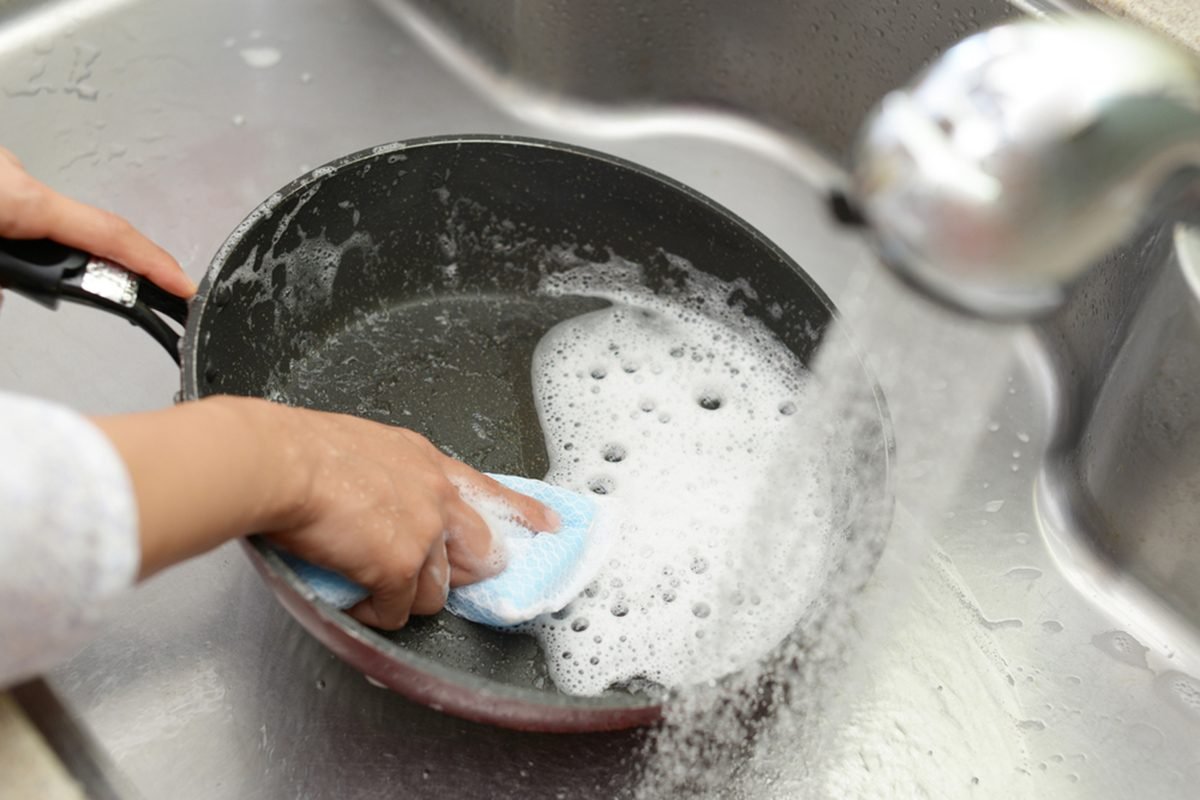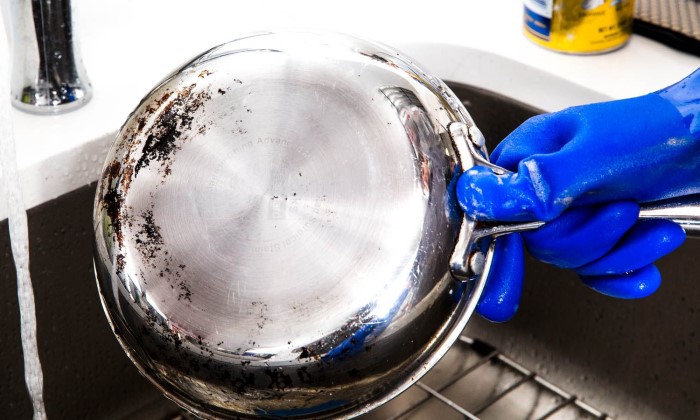
How to Clean Nonstick Cookware and Bakeware
When it comes to cleaning nonstick cookware, there are several methods to consider. Hand-washing is an effective way to clean nonstick pans, but what about cleaning them with cooking sprays or ketchup? These methods will all leave your pans looking and smelling great. Below are some simple methods for cleaning nonstick cookware. Read on to learn more about these methods. Listed below are some of the most common methods:
Hand-washing non-stick cookware
Hand-washing your nonstick bakeware and cookware is a great way to maintain its nonstick coating and prevent stains and odors from developing. Although nonstick bakeware is dishwasher safe, you should always wash it by hand in warm soapy water before storing it. Scrub stubborn food residues with a microfiber cloth or soft sponge. Never use an abrasive scrubber or stainless-steel dishrags on your non-stick bakeware, as they can scratch the non-stick coating.
A solution of baking soda and water is safe to use. The mixture should be applied to the pan and allowed to stand for 15 minutes after heating it. Use an old sponge to scrub off any excess baking soda or soap residue. Be careful not to use abrasive scrubbers or sponges, as these could erode the nonstick coating and cause stains and corrosion. Hand-washing nonstick cookware and bakeware is the best way to maintain its luster and prevent stains and grime from ruining the coating.
When it comes to cleaning nonstick cookware, it is important to read the care instructions that came with your nonstick cookware. This will prevent any problems in the future. Besides, the nonstick coating will wear off over time and can damage the pan. The nonstick coating is designed to last for a long time, but it can become worn down over time. You can’t expect it to last forever unless you clean it frequently, so make sure you follow the manufacturer’s recommendations.
Cleaning non-stick pans with ketchup
There are two common solutions to cleaning a non-stick frying pan: ketchup and lemon juice. While lemon juice works well to remove grease, salt will work to lift stubborn stains and tackle baked-on grime. If your non-stick pan has a stainless steel surface, using a solution of coarse salt and lemon juice can effectively clean it without damaging the finish. While both solutions are effective, they have different applications.
A common solution to dirty baking sheets is ketchup. The acid in ketchup will break up burnt bits and grease in the pan. To apply ketchup to a dirty pan, simply squirt some onto the pan. Wait at least 30 minutes, then scrub with a scrubber to remove any stains or burns. Once the ketchup has dried, you can wipe off the remaining residue with a cloth and soap.
Another solution is to boil water and salt mixture and wipe the pan with a sponge. It is important to note that the non-stick pan will start to wear off after some time. For this reason, it is recommended to season them every six months or so. For this, rub the pan with oil before use. Alternatively, you can use a mixture of water and ketchup to clean a non-stick pan.
Cleaning non-stick pans with cooking sprays
Keeping your non-stick pans looking their best is easy, thanks to their easy-to-clean surface. If you have a pan with a buildup of oil, you can clean it using a vinegar solution. This solution will cut through the oil layer and remove stains. After you’ve cleaned the pan, you can re-season it using cooking oil. But before you do that, it’s a good idea to clean it first!
While cooking sprays can be convenient, they can also damage your nonstick pans by causing a build-up of residue. While cooking sprays are helpful, they also burn at a lower temperature than the nonstick coating, so the residue they leave behind can ruin the nonstick feature of your cookware. This residue can also be difficult to remove. To avoid destroying your non-stick pan, don’t use cooking sprays at all.
Cooking sprays also contain a substance known as Teflon, which makes your cookware highly stain-resistant. However, these fumes have been linked to brain fog and memory loss. Toxins in cooking sprays can build up in the body over time, and they can cause a range of health problems, including cancer. GMOs are commonly found in cooking sprays.



